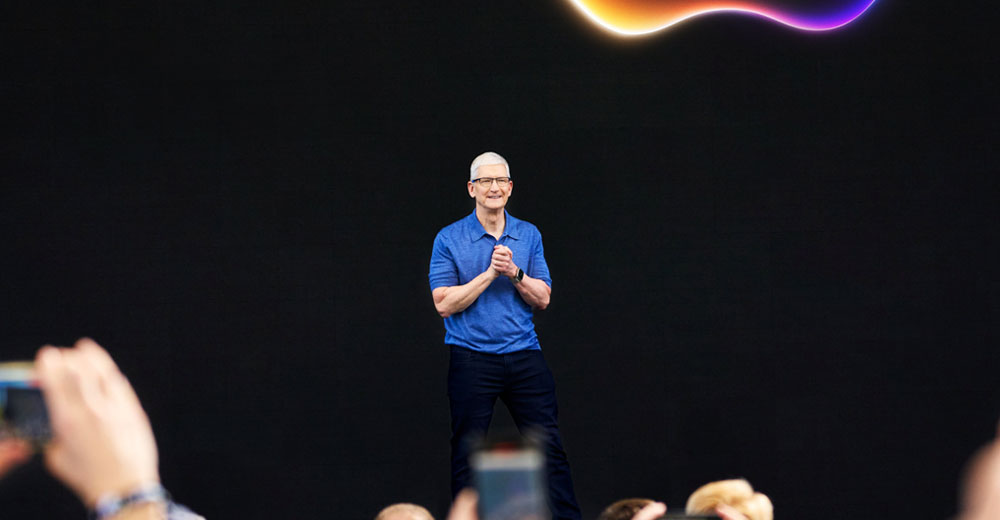
Internet pioneer Tim Berners-Lee, largely credited with inventing the World Wide Web and its open source, barrier-free information distribution model, worries in a new Scientific American essay that the Web’s most successful inhabitants are gradually chipping away at its “egalitarian” foundations.
“The Web as we know it is being threatened,” Berners-Lee writes. “Large social-networking sites are walling off information posted by their users … . Wireless Internet providers are being tempted to slow traffic to sites with which they have not made deals. Governments — totalitarian and democratic alike — are monitoring people’s online habits, endangering important human rights.”
Unchecked, these creeping conundrums threaten to break the Web into islands as fragmented as the cellphones, tablets and personal computers that now access it.
“I definitely agree with Berners-Lee — he actually does not go far enough,” said Avner Levin, who directs Ryerson University’s Privacy and Cyber Crime Institute.
Citing “differing priorities between individuals, business and governments,” social media archiving expert Blane Warrene said the issues Berners-Lee examines are far from “black and white. I do agree that walling off data that should be public is an issue,” explained Warrene, CEO of BMRW and Associates. “But I do not see social networks as direct threats.”
Entrepreneurial Internet
“Vital to democracy” and “more critical to free speech than any other medium,” the Internet is a “communications channel that makes possible a continuous worldwide conversation,” Berners-Lee argues.
Universality (“when you make a link, you can link to anything”), decentralization (“you do not have to get approval from any central authority to add a page or make a link”), and open standards (“web technologies that individuals and companies need to develop powerful services available for free, with no royalties”) are critical components under siege in an ironic way, Berners-Lee argues. Companies and organizations that have most successfully used them now threaten to erect barriers around them.
Broadly categorized into “walled gardens” and threats to Net neutrality, these barriers would create information silos that benefit a few large players at the expense of many end-users.
Net neutrality, which advocates no restrictions by Internet service providers or governments on virtually any aspect of Internet communication, poses the thorniest gray area to Charles McMahon, chief technology officer and vice president for information technology at Tulane University.
“I agree with Berners-Lee that maintaining Net neutrality is critical,” McMahon told TechNewsWorld. “Proprietary access to content and other features puts innovation at a disadvantage, and I am quite concerned that we are moving away from the entrepreneurial Internet.”
Nonetheless, both governments and ISPs are increasingly trying to direct content flow and type, based on arguments ranging from cybersecurity to good old-fashioned profitability.
“It’s a perfectly fair argument to say, as AT&T might, that ‘we’ve invested billions and should be able to maximize our investment,'” McMahon explained. “But the flipside appears when maximizing investment means erecting barriers.”
Walled Gardens
“Social-networking sites present a different kind of problem,” Berners-Lee writes.
Facebook, LinkedIn, Friendster and others capture information as you enter it and assemble the bits of data into “brilliant databases,” but they’re restricted to those particular sites in silos, “walled off from the others,” he explains.
“The walled garden model is definitely a threat to the Web as we know it,” Ryerson’s Levin told TechNewsWorld — but at the same time, the tug and tussle of innovation modulates that threat.
“There are companies that benefit from the walled garden model,” he noted, “but also companies that benefit from the open garden model, most famously Google. Google and Facebook are fighting over whether Facebook user data will come up on Google searches.”
Such battles are why AOL failed with its early version of a walled garden, McMahon told TechNewsWorld.
“AOL’s walled cities were only available to subscribers,” he said. “What you’re seeing now is some social networks setting up walled gardens, but history suggests they will only be successful for so long.”
Closed Source
Citing iTunes and “the tendency for magazines to produce smart phone ‘apps’ rather than Web apps,” Berners-Lee also confronts what Blane Warrene calls “the ‘appifying’ of the Web.”
Apps that use but ultimately bypass the Web create silos with material you can’t bookmark, email or tweet, Berners-Lee worries.
“Driving new content into walled app environments rather than the public Web risks the loss of a vast amount of knowledge and useful data,” Warrene told TechNewsWorld. “There will always be data that should be walled off, but the success of the Web is due to widespread sharing.”
Denis Anson, director of research and development at Misericordia University’s Assistive Technology Research Institute, disagrees. “This is not a threat,” Anson told TechNewsWorld. “Requiring that you pay for a product, like an app or an iTune, is just commerce.”
Legal and government issues pose bigger Web threats both Anson and Levin suggested.
“We need a legal/regulatory framework that imposes liability on service providers if they allow infringement — of our rights to our personal information and the right to control who makes money from it,” Levin said.
Strange new government regulations pose an even bigger threat in Anson’s opinion.
For instance, “the idea that merely being accused of copyright infringement should require a provider to cut off your access is a clear violation of due process,” he told TechNewsWorld. “Are you posting ideas that I don’t like, or that are critical of me? I’ll accuse you of infringement, and you are cut off. It doesn’t matter if it’s true, and no evidence is required. The accusation is enough.”




















































